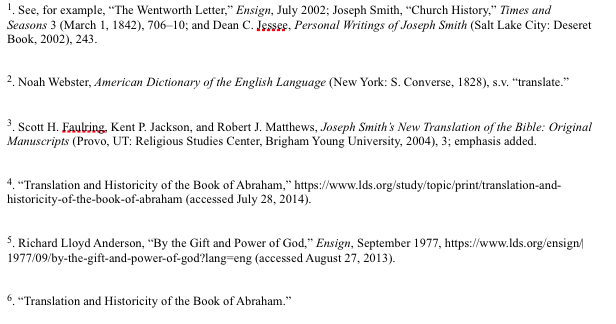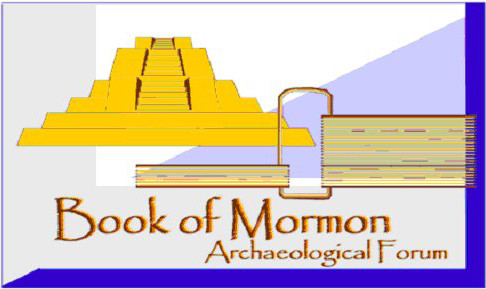Translating “by the Gift and Power of God”
Translating “by the Gift and Power of God”
Copyright © 2014 by Ted Dee Stoddard
The title page of the 1830 edition of the Book of Mormon shows “Joseph Smith, Junior” as the book’s “author.” However, the title page of the 1981 edition does not list Joseph as the author but rather states that the Book of Mormon was “translated by Joseph Smith, Jun.”
In the 1830 edition, Joseph himself tells readers via the preface that he translated the 116 pages of the book of Lehi “by the gift and power of God.” In “The Testimony of Three Witnesses,” as found in all editions of the Book of Mormon, Oliver Cowdery, David Whitmer, and Martin Harris state that the golden plates containing the Book of Mormon were “translated by the gift and power of God.” And Joseph affirmed on other occasions that he had translated the entire Book of Mormon “by the gift and power of God.” In no instance does he explain the precise procedures he followed in achieving that outcome.
Noah Webster’s 1828 dictionary shows several definitions of the transitive verb translate, two of which are instructive in connection with Joseph’s statement that he translated “by the gift and power of God”:
5. To change.
6. To interpret; to render into another language; to express the sense of one language in the words of another.
Through the years since the Book of Mormon’s first publication in 1830, some analysts have concluded that Joseph indeed “rendered” the Reformed Egyptian of the Book of Mormon plates into English. On the other hand, some analysts have concluded that he merely “expressed the sense” of the Reformed Egyptian in English but did not actually “render” the Reformed Egyptian into English.
Question: Did Joseph Smith “change” or “interpret” as he “translated the Book of Mormon by the gift and power of God”?
A logical answer to that question is probably the following: “Who knows?” But time and again, his translated words can be associated with his vocabulary, perceptions, and environment rather than with revelatory words such as those that might be spoken by an angel whispering in his ear during the translation. The influences of Joseph’s vocabulary, perceptions, and environment perhaps caused him on occasion to “change” or “interpret” the content with which he was working—all as part of the process of translating the Book of Mormon “by the gift and power of God.” A simple, classic example is the word adieu in Jacob 7:27.
From another “translation” perspective, Joseph undertook what was known in his lifetime as a “New Translation of the Bible.” Today, his efforts are referred to as the “Joseph Smith Translation.” The Community of Christ publishes Joseph’s Bible translation efforts as The Holy Scriptures: Inspired Version, “an inspired revision of the authorized version by Joseph Smith, Jr.”
Question: Did Joseph Smith indeed “translate” the Bible as the titles “New Translation” and “Joseph Smith Translation” suggest?
Answers: (1) Yes, when Noah Webster’s 1828 definitions of translate involving the present infinitives “to change” and “to interpret” are acknowledged as legitimate aspects of the definition of translate. (2) No, when Noah Webster’s 1828 definitions of translate mean “to render into another language; to express the sense of one language in the words of another.”
Question: Did Joseph Smith translate the Bible “by the gift and power of God” in any way comparable to his translation of the Book of Mormon “by the gift and power of God”?
Answer: Although the phrase “by the gift and power of God” is not commonly applied to Joseph’s translation of the Bible, a careful examination of the “changes” and “interpretations” reflected in the Joseph Smith Translation probably supports the following statement: “Joseph Smith ‘translated’ the Bible by the gift and power of God.” In a similar vein, Scott Faulring, Kent Jackson, and Robert Matthews say the following about the Joseph Smith Translation:
The Prophet Joseph Smith was instructed by the Lord to undertake a careful reading of the Bible to revise and make corrections in accordance with the inspiration that he would receive. The result was a work of profound significance for the Church that included the revelation of many important truths and the restoration of many of the “precious things” that the Book Mormon prophet Nephi had foretold would be taken from the Bible. . . . In June 1830 the first revealed addition to the Bible was set to writing. Over the next three years, the Prophet made changes, additions, and corrections as were given him by divine inspiration while he filled his calling to provide a more correct translation for the Church.
Thus, in doing the work for the Joseph Smith Translation of the Bible, Joseph did not involve himself in the acts of “rendering into another language” or “expressing the sense of one language in the words of another.” He did, however, “change” or “interpret” the Bible’s content as he “made changes, additions, and corrections as were given him by divine inspiration.” Such being the case, he very likely prepared much if not all of the Joseph Smith Translation “by the gift and power of God.”
Finally, some scholars have raised questions about the process Joseph Smith followed in translating the book of Abraham in connection with the Egyptian papyri that came into his possession.
Questions: Did he “render” into English the Egyptian hieroglyphics from the papyri? Whatever process he used associated with the verb translate, did he produce the book of Abraham “by the gift and power of God”?
Answer: When the translation of the book of Abraham is examined in connection with Joseph’s translations of the Book of Mormon and the Bible, a probable conclusion is that he indeed “translated” the book of Abraham “by the gift and power of God.”
In that respect, on its lds.org website, The Church of Jesus Christ of Latter-day Saints makes the following comments:
- “The Lord did not require Joseph Smith to have knowledge of Egyptian. By the gift and power of God, Joseph received knowledge about the life and teachings of Abraham.”
- “Neither the Lord nor Joseph Smith explained the process of translation of the book of Abraham.”
- “Joseph’s study of the papyri may have led to a revelation about key events and teachings in the life of Abraham.”
- “The physical artifacts [the Egyptian papyri] provided an occasion for meditation, reflection, and revelation. They catalyzed a process whereby God gave to Joseph Smith a revelation about the life of Abraham, even if that revelation did not directly correlate to the characters on the papyri.”
Online sources are now fairly replete with attempts by scholars and others either to explain or to denigrate the specifics of how Joseph Smith translated “by the gift and power of God.” However, no unanimity of opinion exists among the scholars and others over how Joseph did his “translating.” Such concluding comments as the following support that statement:
- “No one besides Joseph Smith knew personally the exact means of translation.”
- “The word translation typically assumes an expert knowledge of multiple languages. Joseph Smith claimed no expertise in any language.”
- “The Prophet Joseph alone knew the full process [of translation by the gift and power of God], and he was deliberately reluctant to describe details.”
- “Joseph declined to say more about the translation of the Book of Mormon than to declare that it was accomplished through “the gift and power of God.” No matter how closely we examine the process, no matter how well we might understand the human aspect, Joseph’s description really remains the best.”
- “The translation of the Book of Mormon was a spiritual process. . . . Joseph chose to emphasize that the most important aspect of the translation was that it was accomplished by the gift and power of God. The precise means by which God accomplished that purpose are primarily of historical interest, and are not required to build faith.”
Thus, in spite of both positive and negative analyses of the process Joseph Smith may have used in translating “by the gift and power of God,” no one today knows precisely how Joseph accomplished that outcome. In spite of the scholarly credentials or perceived expertise of those who write about Joseph’s translation of the Book of Mormon, Bible, and book of Abraham, the best that can be deduced about the translation process is that “Joseph Smith translated by the gift and power of God.” That statement definitely applies to the Book of Mormon and probably also applies to most of the Joseph Smith Translation of the Bible and to the entire book of Abraham.
Obviously, faith must play a central role in the plan of anyone who is concerned about the specifics of Joseph’s statement that he “translated by the gift and power of God.” Neither believers nor nonbelievers know with revelatory knowledge the specifics of what Joseph meant with that descriptive language.
For now, perhaps the best approach is to include the following question on a list of afterlife questions to ask Joseph Smith: “What specific procedures did you use in translating by the gift and power of God?” His likely answer: “You don’t need that historical question answered for salvation purposes. Trust me—I translated ‘by the gift and power of God.’”
Notes



